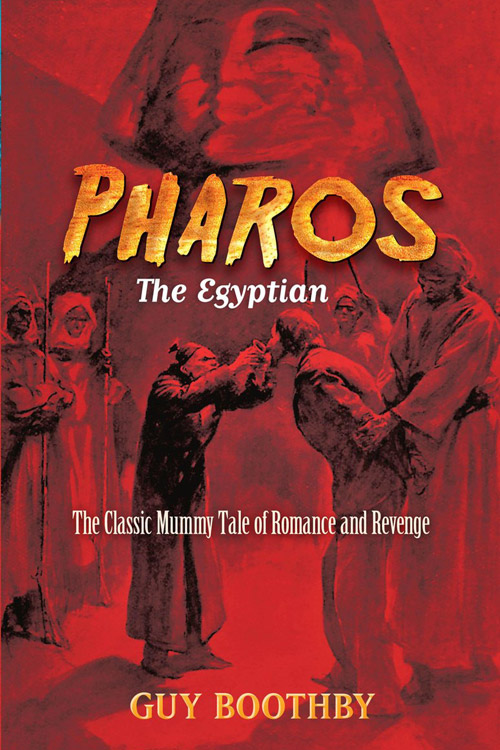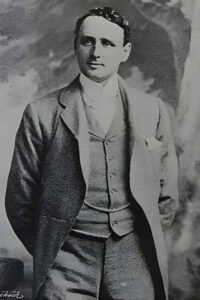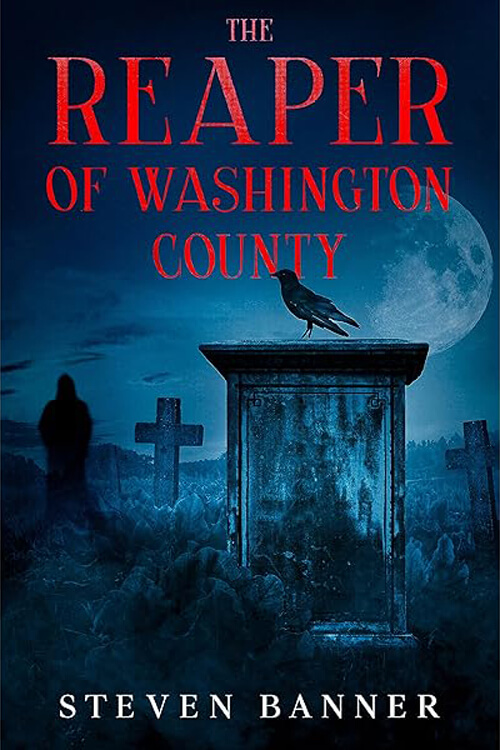
Pharos the Egyptian
Never in my life have I been placed in such an awkward, not to say invidious, position. As you know, I am a plain man, fond of a plain life and plain speaking. Yet, I am about to imperil that reputation by communicating what I fancy you will consider the most extraordinary and unbelievable intelligence you have ever received. For my part, I do not know what to think. I have puzzled over the matter until I am not in a position to judge fairly. You must, therefore, weigh the evidence for us both. For pity’s sake, however, do not decide hastily. In dubious benign oral semper sunt referenda, as they used to say in our schooldays, must be our motto, and by it, we must abide at any hazards. As far as I can see, we are confronted with one of the saddest and, simultaneously, one of the most inexplicable cases ever recorded on paper.
Reduced to its proper factors, it stands as follows: Either Forrester has gone mad and dreamed it all, or he is sane and has suffered as few others have done in this world. In either case, he is deserving of our most profound pity. In one way or another, we are fortunate. Knowing the man as we do, we are in a position to estimate the value of the accusations he brings against himself. Of one thing, I am convinced—a more honourable being does not walk this earth. Our acquaintance with him is of equal length. We were introduced to him and each other on the same occasion, upwards of twelve years ago, and during that time, I know I am right in saying neither of us ever had reason to doubt his word or the honour of a single action. Indeed, to my mind, he had but one fault, which was not uncommon in the latter days of the nineteenth century. I refer to his somewhat morbid temperament and the consequent leaning towards the supernatural it produced in him.
“As the world has good reason to remember, his father was perhaps the most eminent Egyptologist our century has seen. His whole mind and being was impregnated with a love for that ancient country and its mystic past. Small wonder, therefore, that the son should have inherited his tastes and that the same peculiar partiality should have influenced his life. While saying, however, that he had a weakness for the supernatural, I am by no means admitting that he was what is vulgarly termed a spiritualist. I do not believe for an instant that he ever declared himself so openly. His mind was too evenly balanced and, simultaneously, too healthy to permit such an enthusiastic declaration of his interest. For my part, I believe he inquired into the matter as he would have done into, shall we say, the Kinetic theory of gases or the history of the ruined cities of Mashona-land to satisfy his curiosity and perfect his education on the subject. Having thus made my feelings known to you, I will leave the matter in your hands, confident that you will do him justice, and will proceed to describe how the pathetic record of our friend’s experiences came into my possession.
“I had been hunting all day and did not reach home until between half-past six and seven o’clock. I remember we had a house full of visitors at the time, some of whom had been riding with me, and the dressing gong sounded as we dismounted from our horses at the steps. It was plain that if we wished to change our attire and join the ladies in the drawing room before dinner was announced, we had no time to lose. Accordingly, we departed to our various rooms at the speedest possible.
Read or download Book
Guy Newell Boothby
Guy Newell Boothby (13 October 1867 – 26 February 1905) was a prolific Australian novelist and writer, noted for sensational fiction in variety magazines around the end of the nineteenth century. He lived mainly in England. He is best known for such works as the Dr Nikola series, about an occultist criminal mastermind who is a Victorian forerunner to Fu Manchu, and Pharos, the Egyptian, a tale of Gothic Egypt, mummies’ curses, and supernatural revenge. Rudyard Kipling was his friend and mentor, and his books were remembered with affection by George Orwell.
Biography
Boothby was born in Adelaide to a prominent family in the recently established British colony of South Australia. His father was Thomas Wilde Boothby, who for a time was a member of the South Australian Legislative Assembly, three of his uncles were senior colonial administrators, and his grandfather was Benjamin Boothby (1803–1868), controversial judge of the Supreme Court of South Australia from 1853 to 1867. When Boothby was aged approximately seven his English-born mother, whom he held in great regard, separated from his father and returned with her children to England. There he received a traditional English grammar school education at Salisbury, Lord Weymouth’s Grammar (now Warminster School), and Christ’s Hospital, London.
Following this, Boothby returned alone to South Australia at 16, where, in his turn, he entered the colonial administration as private secretary to the mayor of Adelaide, Lewis Cohen, but was “not contented” with the work. Despite Boothby’s family tradition of colonial service, his natural inclinations ran more to the creative than to the administrative and he was not satisfied with his limited role as a provincial colonial servant. In 1890, aged 23, Boothby wrote the libretto for Sylvia, a comic opera, published and produced at Adelaide in December 1890, and in 1891 his second show, The Jonquil: an Opera, appeared. He also wrote and performed in an operetta, Dimple’s Lovers, for Adelaide’s Garrick Club theatre group. The music in each case was written by Cecil James Sharp. His early literary ventures were directed at the theatre, but his ambition was not appeased by the lukewarm response his melodramas received in Adelaide. When severe economic collapse hit most of the Australian colonies in the early 1890s, he followed the well-beaten path to London in December 1891.
Boothby, however, was thwarted in his first bid for recognition as lack of funds forced him to disembark en route in Colombo, Sri Lanka, and begin making his way homewards through South East Asia. According to family legend, the dire poverty he faced on this journey led him to accept any kind of work he could get: ‘This meant working before the mast, stoking in ocean tramps, attending in a Chinese opium den in Singapore, digging in the Burmah Ruby fields, acting, prize fighting, cow punching…’ This was followed by a brief sojourn on Thursday Island, a Melanesian island in the Torres Strait group recently annexed by the Queensland colony, where he worked as a diver in the lucrative pearl trade; and finally by an arduous journey overland across the Australian continent home to Adelaide. While Depasquale, author of the only Boothby biography, warns that this account of his travels may be somewhat glamorous, Boothby certainly traveled extensively in South East Asia, Melanesia, and Australia during this period, collecting a stock of colonial anecdotes and experiences that were to influence much of his later writing.
Approximately two years later, Boothby finally reached London and succeeded in having an account of his peregrinations, On the Wallaby, or Through the East and Across Australia, published in 1894. The travelogue met with reasonable success, which was matched later that year by Boothby’s first novel, In Strange Company. A novel of adventure set variously in England, Australia, the South Seas, and South America, In Strange Company established a pattern that was to characterize the succeeding Boothby oeuvre – the use of exotic, international, and particularly Australasian locales that frequently function as an end in themselves superfluous to the requirements of the plot. By October 1895, Boothby had completed three further novels, including A Bid for Fortune, the first Dr Nikola novel which catapulted Boothby to wide acclaim. Of the two other novels Boothby wrote in 1895 A Lost Endeavour was set on Thursday Island and The Marriage of Esther ranged across several Torres Strait Islands. Boothby continued to produce fiction at a ferocious rate, producing up to six novels a year across the range of genres prevalent at the fin de siècle and is credited with producing over 53 novels in total, not to mention dozens of short stories and plays.






